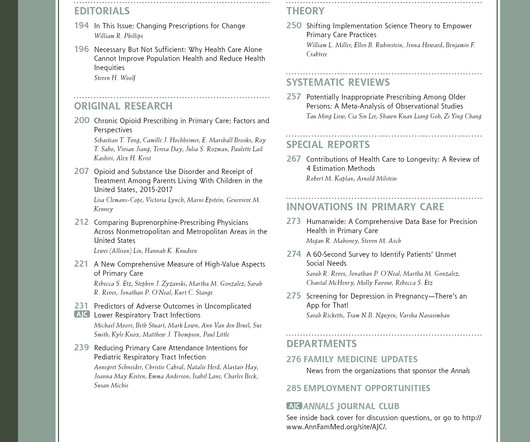Development of a Multidisciplinary Clinic for the Treatment of Obesity in a Canadian University Family Medicine Group (U-FMG) [Obesity, exercise and nutrition]
Annals of Family Medicine
NOVEMBER 20, 2024
Objective To implement and evaluate a novel multidisciplinary trajectory aimed at improving the treatment of obesity thus preventing multiple health-related complications. Follow-up frequency, ranging from weekly to monthly for up to 12 months, is tailored to individual needs.




























Let's personalize your content